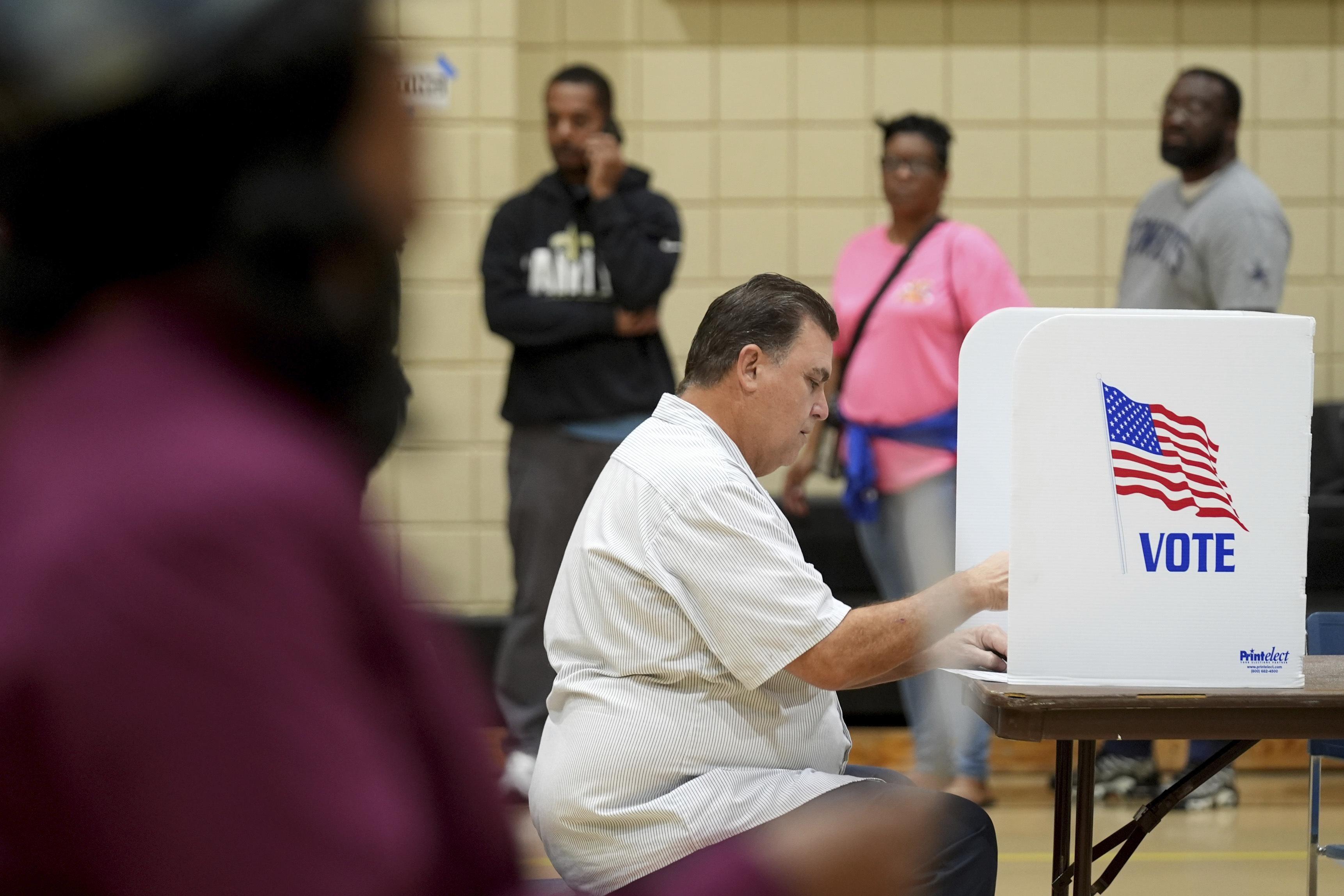Mississippi’s ballot initiative process has been in limbo since 2021, when the state Supreme Court struck it down in Butler v. Watson. The justices ruled that the constitutional requirement for signatures from five congressional districts was unworkable, since Mississippi has only had four districts since 2001.
Samantha Buckley, policy director at the nonpartisan Secure Democracy Foundation, told lawmakers the fix could be as simple as changing “five” to “four” in the constitution. But she warned that would only patch the problem temporarily.
“A more long-term fix would be to remove the mention of how many congressional districts, and essentially making it proportional to the number of congressional districts in existence at the time the petition is filed,” Buckley said.
Rep. Noah Sanford, R-Collins, who chairs the committee, said restoring the initiative process is a priority for Speaker Jason White and House leaders want to craft a plan that will stand the test of time.
“My intention would be to make it to where that's not a concern going forward, that it would be struck down on a technicality,” Sanford said.
Lawmakers have struggled for 3 years to reach consensus on a new initiative process. Some want the old system restored, others want successful initiatives to become laws instead of constitutional amendments, and some argue the process should be scrapped altogether.
Sanford acknowledged that getting all the parties involved on the same page won’t be easy.
“I feel very strongly we can get something through the House, but I hope we can get something to the House that is acceptable to the Senate and to the governor,” Sanford said
Some argue that the old initiative process wasn’t restrictive enough, but Buckley noted that under that process, Mississippi voters have only passed three initiatives. Those placed restrictions on eminent domain, established voter ID requirements and approved a medical marijuana program, though the latter was invalidated by the 2021 Mississippi Supreme Court ruling.
Restoring suffrage to nonviolent felons
The committee is also examining potential reforms to Mississippi’s felony disenfranchisement laws. The state constitution permanently strips voting rights for 10 crimes, but over the years attorney general opinions have expanded the list to 23 categories of crime and around 100 specific charges. Buckley told lawmakers the policy leaves about 52,000 Mississippians, roughly 2% of the state’s voting-age population, without the right to vote.
Sanford said the current rules often produce results that defy logic.
“You can marry two people, commit bigamy, you've lost your right to vote permanently. If you kidnap someone, you don't lose your right to vote,” Sanford said. “If you steal $250 worth of timber, you've committed timber larceny and you lose your rights to vote. If you commit a drive-by shooting, you don't lose your right to vote. I mean, it doesn't make any sense”
According to Sanford, there is broad agreement in the House that Mississippi should adopt an automatic restoration process for people convicted of nonviolent disenfranchising felonies once they complete their sentences and pay restitution
Buckley told the committee that automatic restoration is how most other states approach the issue, and that method is cheaper than Mississippi’s current case-by-case legislative process, which requires individual suffrage bills to pass by two-thirds vote.
“Automatic restoration simplifies the process for election administrators and the state,” Buckley said. “It does not require the state to establish oversight of the process or delegate authority to a second entity,”
Gov. Reeves’ opposition makes early voting a tough sell for House
While early voting has gained traction in many Republican-led states in recent years, Sanford said it remains a long shot in Mississippi.
“I don't think there is much appetite in the House to do no-excuse early voting without some buy-in from the governor's office,” Sanford said. “If a bill is just going to be vetoed, I think the House finds that not to be a good use of our time.”
During the 2024 and 2025 sessions, the Senate passed bills that would allow 15 days of no-excuse, in-person early voting ahead of election day, but the House declined to advance them. Senate Elections Chairman Jeremy England, R-Vancleave, has led those efforts, drawing fierce criticism on social media from Gov. Tate Reeves, who opposes the policy.
Buckley noted that the majority of states now offer some form of early voting and that Mississippians are interested in it because they face practical hurdles when elections are limited to regular business hours.
“People realize it’s difficult to fit our day-to-day life around business hours for the clerks," Buckley said. “We can have security and integrity in our elections and still give people that option.”
What’s next
The committee will hold additional hearings and then provide policy recommendations before lawmakers return to Jackson for the 2026 legislative session. Sanford said he expects legislation on the ballot initiative and felony suffrage restoration to emerge from the House, though he cautioned that compromise with the Senate and governor’s office will determine what those bills look like.




